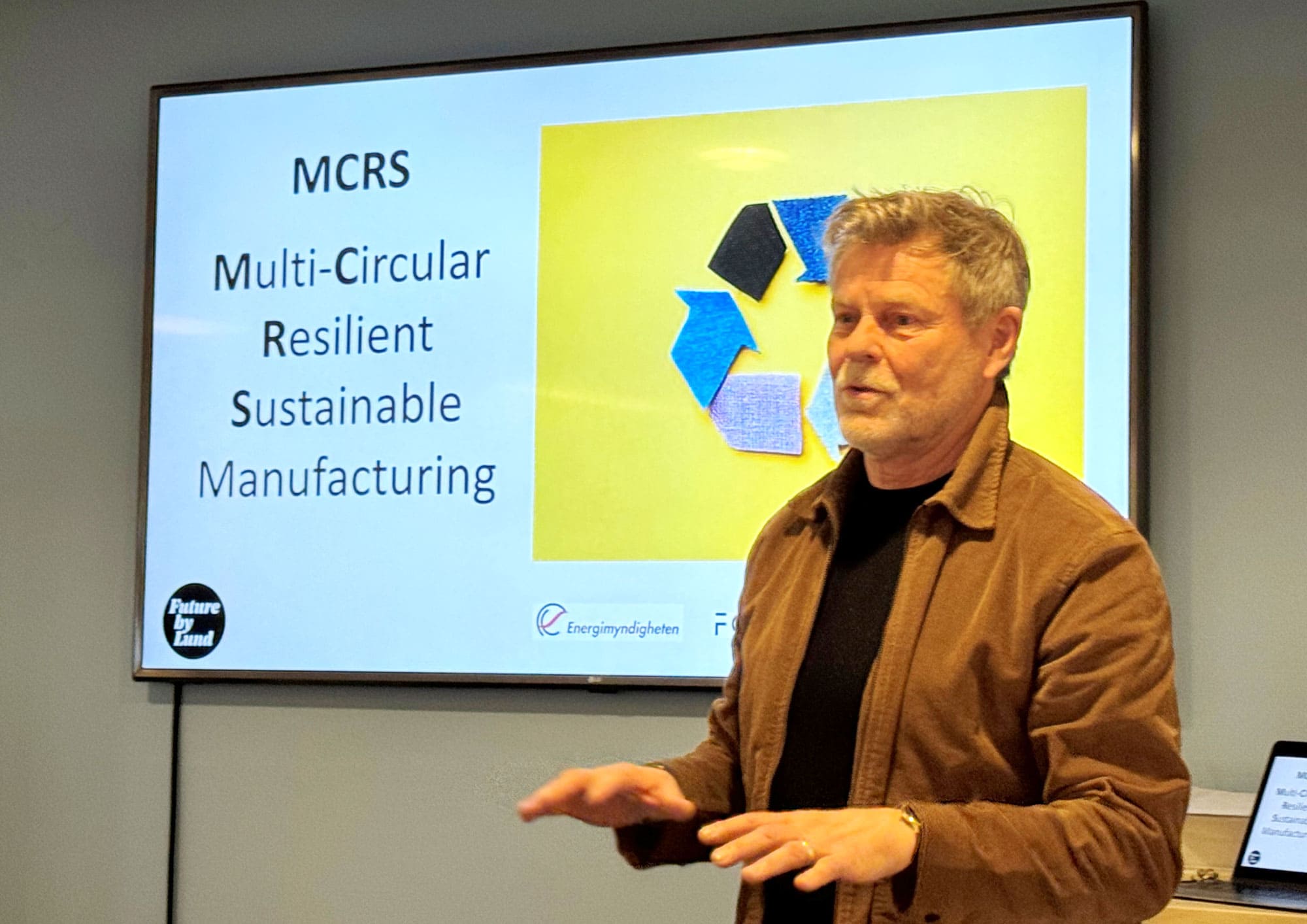Textile Collaboration for Research and Innovation

At a time when development, for example in technology and AI, design and fashion, is only going faster and faster, it is all the more important to collaborate with research for innovation.
- When working with innovations, we can no longer do things step by step, but have to work with several tracks and keep several thoughts in our heads at the same time, says Charlotte Lorentz Hjorth, Lund University. It is also important that researchers are involved in these contexts and pick up the work for the research. You can't shut yourself down because then you risk becoming obsolete quickly.
The network Fashion @LU started a few years ago includes researchers from all nine faculties, which in fact all have topics that can be related to the field of fashion and textiles. Now this work is strengthened by the inclusion of partners from the business and public sector to the network with the new name Fashion @LU with friends. Since the last meeting with the network, a number of important initiatives have also been launched or further developed, and these were presented during the meeting.
Daniel Hellström from Lund University presented a central initiative in which Lund University brings together forces in terms of trade and logistics. On Campus Helsingborg now available REAL — Centre for Retail and Logistics — bringing together research, education and the work on innovation. The centre is profiled towards sustainability, digitalisation and changing working life.
- The aim is to build a strong interdisciplinary environment in the long term, says Daniel Hellström, Head of Department at Packaging Logistics at Department of Design Sciences at LTH. Through the synergy of research, education and innovation in trade and logistics, we can help create a world where well-being, fulfillment and sustainability are important. Traditionally, it has often been thought that research leads to innovation, but perhaps instead it is in innovation projects that research is at the forefront? We want to explore how we can work systematically with innovation to drive the industry forward.
Anyone who would like more information can contact Daniel Hellström at daniel.hellstrom@plog.lth.se.

MCRS (Multicircular and Sustainable Manufacturing Industry) is the first part of hopefully more projects involving the creation of a system demonstrator for the manufacturing industry. The project looks at a production chain with circulated materials and with DPP (Digital Product Passport) integrated into the product. The DPP is a regulation that the EU is working on and the idea is that products in textiles, small electronics and batteries should initially be provided with information through, for example, QR codes or NFC tags. (Read more here) One effect of this is expected to be more sustainable production chains where, for example, materials and products are reused or recirculated.
- DPP can be seen as a digital twin, says Lars Mattiasson, project manager for MSCR at Future by Lund. Although we do not yet know the exact requirements, we can think about what the DPP can be used for. DPP is a way to link the value chain, make it visible and provide products with protected and secure information. DPP is an enabler and a driver of collaboration and allows us to see the entire value chain and understand how it is connected.
Now an application for a continuation of the project is approaching. In the first part, we have started from a production chain in which all parts are known; in the second part, we want to expand by having more collaboration and more partnerships. It is fitting to link this with the new logistics and trade centre REAL.
- There is also the possibility to join to work or be part of the upcoming application, says Lars Mattiasson. The circular chains will create new opportunities and we will see more new business models for circular reflows. A lot of new things will be created and it is exciting if more people want to participate. (Contact Lars.Mattiasson@futurebylund.se)
In the collaboration around Future by Lund there is also the project team which is run by Lund University in collaboration with Future by Lund. The project involves participants from all over Europe and together they carry out preliminary work and make recommendations for the EU's future innovation policy for the Cultural and Creative Industries (CCI). An important part of this has been to involve industry stakeholders in the work and test policy recommendations in urban ecosystems. The next opportunity in Lund will be on March 27 and then it will be about sustainable and circular manufacturing, DPP (Digital Product Passport), Textile, Fashion and Crafts. At the beginning of June, a so-called Policy Lab will be organized in Lund on performing arts and innovation.
Another project is IPA (Innovation Portfolio Approach) operated in cooperation with partners from the Netherlands and Romania. It examines how to include the internal drives of man and nature, economy and resources in the work with innovations so that the solutions developed develop in harmony with the environment.

